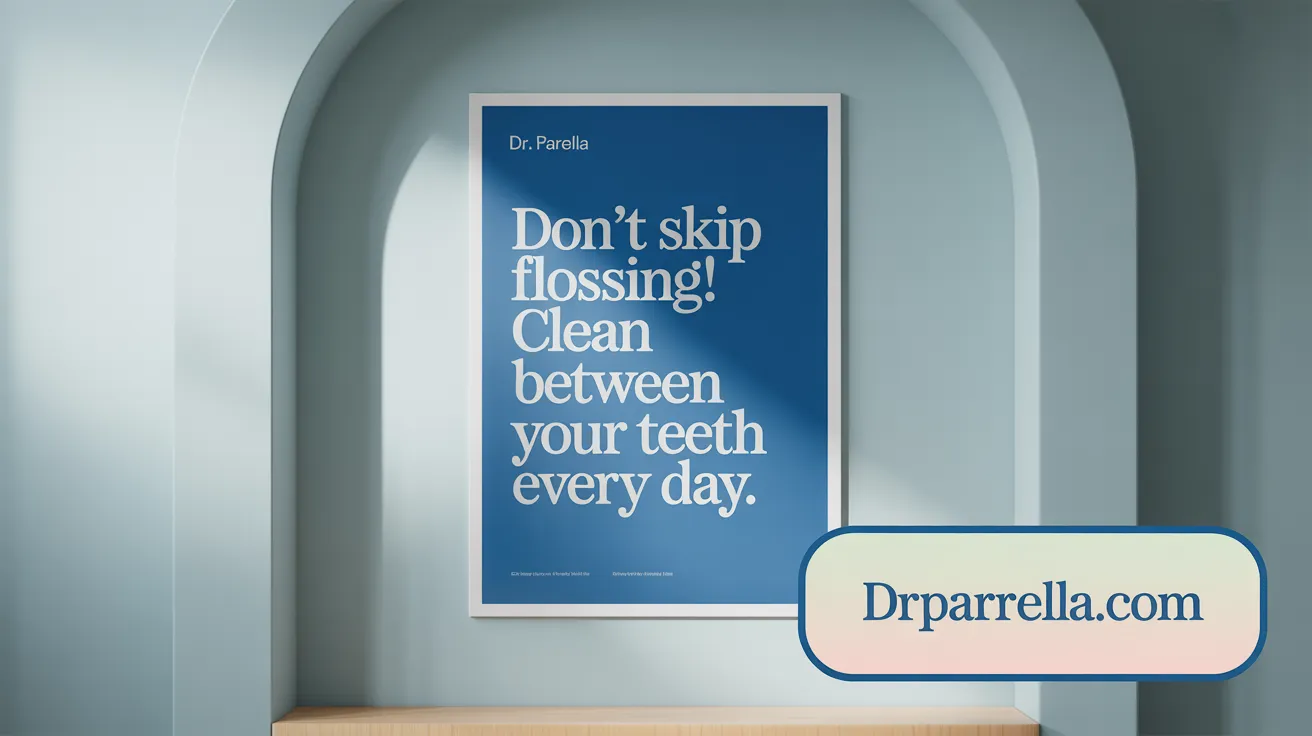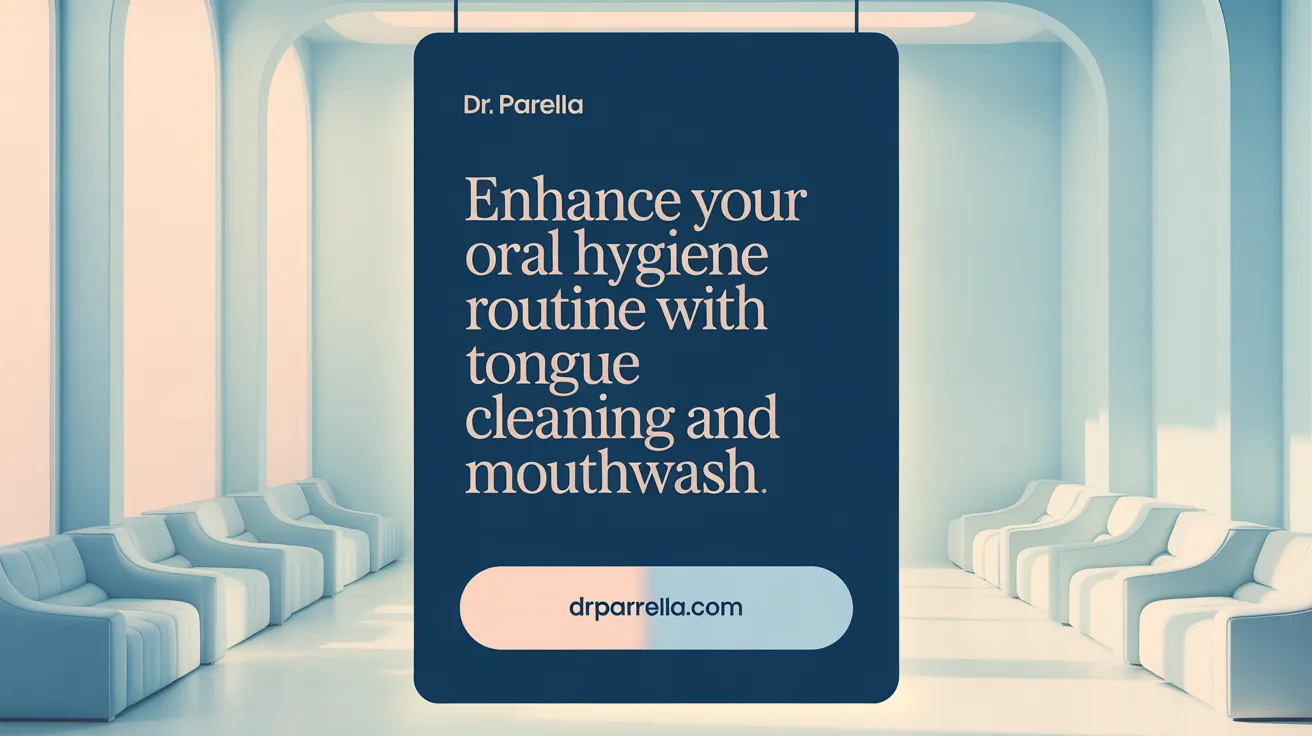Why Daily Oral Care Matters
Maintaining excellent oral health at home is more than a routine task; it is a foundational practice that safeguards not only your smile but also your overall well-being. Daily habits such as proper brushing, flossing, and rinsing can prevent cavities, gum diseases, and other oral health issues that potentially impact systemic health. This guide explores simple yet effective daily practices to promote lasting oral hygiene and overall health.
Effective Brushing Techniques for Healthy Teeth and Gums

What are the best practices for brushing teeth daily?
Brushing your teeth at least twice a day for about two minutes each session is essential for maintaining healthy teeth and gums. Use a soft-bristled toothbrush and fluoride toothpaste to remove plaque safely and strengthen enamel. Holding the brush at a 45-degree angle to the gum line helps clean plaque effectively along the gum border.
Brush gently using circular motions or short vertical strokes rather than aggressive scrubbing, which can damage gums and enamel. Including brushing of all tooth surfaces and the tongue lowers bacterial load and helps prevent bad breath.
Replacing your toothbrush every three to four months is important as worn bristles become less effective. Substitute earlier if bristles appear frayed to ensure optimal cleaning performance.
Electric toothbrushes offer enhanced plaque removal — studies show up to 70% better results compared to manual brushes when used correctly. They can be particularly helpful for individuals with limited hand dexterity.
Consistent use of fluoride toothpaste during brushing supports enamel remineralization and cavity prevention, reinforcing a strong defense against tooth decay.
In sum, twice-daily brushing with a soft-bristled brush, proper technique, timely toothbrush replacement, and fluoride toothpaste form the foundation of an effective oral hygiene routine.
Flossing and Interdental Cleaning: Reaching Where Brushes Can’t

Why is daily flossing important and how should it be done?
Daily flossing plays a crucial role in oral hygiene by removing plaque and food debris from areas that toothbrushes can’t reach—specifically between teeth and under the gumline. This cleaning helps prevent cavities, gingivitis, and more serious gum diseases by disrupting plaque buildup.
Proper flossing involves using about 18 inches of dental floss, wrapping it around your middle fingers for control. The floss should be gently slid between teeth and curved into a C-shape around each tooth. Move the floss up and down along the tooth surface and beneath the gumline to effectively clean without causing gum damage by snapping. For detailed guidance, see Daily flossing importance.
Alternative interdental cleaners
For those who find traditional flossing challenging due to dexterity or preference, several alternatives exist. Interdental brushes come in various sizes and fit between teeth to remove plaque and food particles. Water flossers use a stream of water to flush debris and plaque effectively and can be easier for some users. Floss holders and threaders also offer assistance in managing floss for easier use.
Benefits of daily interdental cleaning
Using floss or interdental tools daily significantly reduces the risk of gum disease and cavities by targeting plaque buildup where brushing alone is ineffective. This routine supports healthier gums, fresher breath, and overall better oral health, complementing regular brushing and professional dental care as explained in Proper oral hygiene routine tips and Benefits of good oral hygiene.
The Role of Tongue Cleaning and Mouthwash in Oral Hygiene

How do tongue cleaning and mouthwash contribute to oral health?
Cleaning the tongue daily through brushing or scraping plays a crucial role in reducing bacteria responsible for bad breath and plaque buildup. Brushing the tongue benefits removes food debris and dead cells, promoting fresher breath and improved oral hygiene overall.
Mouthwash use complements brushing and flossing by targeting bacteria in areas that toothbrushes cannot reach. Alcohol-free mouthwash use is preferred because they reduce harmful oral bacteria without causing dry mouth. Mouthwashes containing fluoride strengthen tooth enamel, helping to prevent cavities and tooth sensitivity.
Antimicrobial mouth rinses with essential oils or cetylpyridinium chloride help reduce plaque and gingivitis effectively. Fluoride-containing rinses provide additional decay prevention and enamel protection.
For best results, it is recommended to use mouthwash at a different time than brushing, ideally not immediately after, to allow fluoride toothpaste to remain longer on teeth for maximum benefit. This combined routine enhances oral health by controlling bacteria, reducing plaque, and supporting fresh breath.
Diet and Lifestyle Choices Supporting Oral Health
How do diet and lifestyle affect oral health?
Diet and lifestyle have a significant impact on oral health. Limiting intake of sugary and acidic foods helps reduce acid production in the mouth, which in turn lowers the risk of enamel erosion and cavities. Acidic drinks such as soda, citrus juices, and wine soften enamel temporarily, so consuming these in moderation is key.
Beneficial foods for teeth include fibrous, crunchy fruits and vegetables like apples, carrots, and celery. These foods naturally scrub the tooth surfaces and stimulate saliva production. Saliva plays an essential role in neutralizing acids and washing away food particles, contributing to a healthier mouth environment.
Staying hydrated by drinking plenty of water supports saliva flow, which is vital for maintaining oral cleanliness and preventing dry mouth conditions that can accelerate decay and bad breath.
Tobacco use, notably increases the risk of oral health problems including gum disease, tooth staining, and oral cancers. Similarly, excessive alcohol consumption worsens these risks. Avoiding tobacco and moderating alcohol can significantly reduce such health concerns.
Oral piercings pose additional risks by causing tooth fractures, wear, and gum recession. Due to these dangers, health professionals discourage oral piercings.
By adopting a balanced diet rich in wholesome foods, maintaining hydration, and avoiding harmful habits like smoking and unnecessary piercings, individuals can effectively support their oral health and overall wellbeing.
Recognizing Warning Signs and the Importance of Regular Dental Visits

What Are the Warning Signs of Poor Oral Hygiene?
Poor oral hygiene manifests through various symptoms such as bleeding gums, tooth decay, chronic bad breath, loose teeth, gum recession, mouth sores, and oral infections. These signs indicate that plaque and bacteria have accumulated, potentially leading to gum disease and cavities if left untreated.
Why Are Regular Dental Visits Important?
Routine dental checkups play a vital role in maintaining oral health. They allow professionals to perform thorough cleanings that remove hardened plaque known as tartar, which cannot be eliminated by regular brushing or flossing at home.
How Often Should You Visit the Dentist?
For most individuals, visiting the dentist twice a year is recommended. However, people who are more susceptible to cavities, gum disease, or other dental issues may need more frequent appointments to effectively manage their oral health.
What Are the Benefits of Professional Cleaning and Early Detection?
Professional cleanings prevent disease progression by eliminating stubborn plaque and tartar buildup. Early detection during dental exams helps identify problems such as cavities, gum inflammation, or infections before they worsen, allowing timely treatment that preserves teeth and gum health.
Special Considerations for High-Risk Individuals
Those with conditions like diabetes, a history of gum disease, or smokers are at a higher risk of dental complications. Regular monitoring and possibly more frequent dental visits ensure these individuals receive tailored care to prevent serious oral health problems.
Maintaining a schedule of regular dental visits, alongside recognizing warning signs early, supports not only oral wellness but also overall health, preventing costly and painful complications.
Optimizing Home Oral Care with Tools and Technologies
How can tools and technologies enhance daily oral hygiene routines?
Using oral health products that bear the American Dental Association (ADA) Seal of Acceptance is a reliable way to ensure safety and effectiveness in your daily routine. These products have undergone rigorous scientific testing and are proven to support oral health.
Powered toothbrushes offer a significant advantage by providing more effective plaque removal compared to manual brushing. They are particularly helpful for individuals with limited manual dexterity or special needs. Many powered toothbrushes come equipped with built-in timers and pressure sensors to encourage proper brushing technique and prevent gum damage.
Interdental cleaning devices, including floss holders, floss threaders, water flossers, and interdental brushes, enhance cleaning between teeth where traditional brushing falls short. These tools improve cleaning between teeth and plaque removal in hard-to-reach spaces, reducing the risk of cavities and gum disease.
Incorporating timers—either built into toothbrushes or as standalone devices—to ensure brushing for the recommended two minutes per session improves plaque reduction. Additional strategies such as recording your brushing sessions can help raise awareness and refine technique for a more thorough clean. See oral hygiene routine tips for more details.
Maintaining hygiene of oral care tools is crucial. Regular sanitizing of toothbrushes and their holders through washing in hot soapy water, using disinfectant wipes, or dishwasher cleaning helps minimize bacterial buildup and cross-contamination. For guidance on proper toothbrush care, see rinsing and storing the toothbrush.
Together, these tools and technologies support a comprehensive and effective home oral care routine that promotes healthy teeth and gums.
Connecting Oral Hygiene to Overall Health and Well-being

How does maintaining good oral hygiene impact overall health?
Maintaining good oral hygiene is essential not only for healthy teeth and gums but also for overall health. Oral infections like tooth decay and gum disease can have systemic effects, as they are linked to serious conditions such as cardiovascular disease, stroke, diabetes, pregnancy complications, pneumonia, and dementia.
What is the link between oral health and systemic diseases?
Gum diseases including gingivitis and periodontitis cause inflammation that may contribute to systemic inflammation, which is a risk factor for diseases like heart disease and stroke. Research shows that bacteria from infected gums can enter the bloodstream and affect other organs, exacerbating chronic health problems. See more about oral health and systemic diseases.
How does gum disease specifically impact cardiovascular health and pregnancy?
Gum disease has been associated with increased risk of cardiovascular diseases by promoting arterial inflammation and plaque buildup. During pregnancy, poor oral hygiene and gum disease can increase the likelihood of complications such as premature birth and low birth weight, emphasizing the need for diligent oral care in expectant mothers. Learn about oral health during pregnancy and preventing oral health problems.
Why is saliva important, and how can dry mouth be prevented?
Saliva plays a vital role in oral and overall health by washing away food debris, neutralizing harmful acids, and controlling bacteria in the mouth. Reduced saliva flow, which can result from certain medications or health conditions, raises the risk of oral diseases. Preventing dry mouth through hydration, avoiding tobacco, and using saliva-stimulating methods supports oral defense mechanisms. For detailed guidance, see oral hygiene tips and oral health maintenance.
What role does good oral care play in preventing broader health issues?
Consistent oral hygiene—including brushing twice daily with fluoride toothpaste, flossing, cleaning the tongue, and regular dental visits—helps prevent the development and spread of oral infections. This, in turn, supports systemic health by reducing inflammatory burdens and bacterial dissemination. Overall, maintaining oral health contributes to well-being and lowers the risk of severe health complications. For comprehensive oral hygiene routines, see the importance of oral care.
Embracing Simple Habits for Lifelong Oral Health
Adopting a consistent daily oral hygiene routine encompassing thorough brushing, flossing, tongue cleaning, and the use of mouthwash, complemented by mindful diet and lifestyle choices, forms the cornerstone of excellent oral health. Regular dental check-ups and utilization of effective tools further enhance these efforts. By embedding these simple habits into everyday life, individuals can prevent oral diseases, preserve their smile’s health and appearance, and potentially improve overall systemic health, ensuring a lifetime of confident, radiant smiles.
